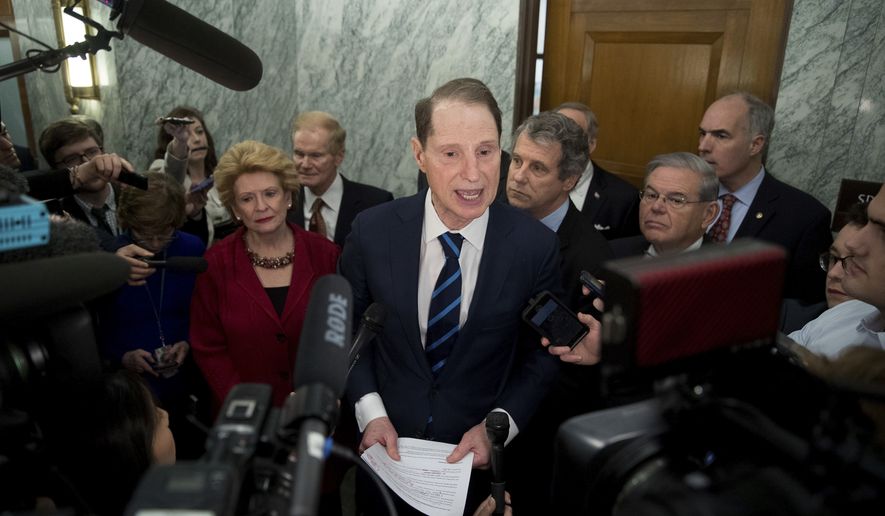With uncertainty over the Trump administration’s willingness to allow states’ legal marijuana markets to flourish, federal lawmakers are teaming up to introduce legislation meant to protect their states’ marijuana laws.
Sen. Ron Wyden and Rep. Earl Blumenauer, Oregon Democrats, on Thursday introduced three bills that would remove marijuana from the list of federally banned drugs and allow it to be taxed and regulated like alcohol; repeal federal criminal penalties related to marijuana in states where individuals or businesses are following the applicable state laws; and allow marijuana businesses to claim tax credits.
With more than 20 percent of Americans residing in states where recreational use of marijuana is legal, the lawmakers said their legislation is meant to protect decisions that state residents have backed. Eight states and Washington, D.C. have all legalized recreational marijuana use through voter-approved ballot initiatives.
“The federal government must respect the decision Oregonians made at the polls and allow law-abiding marijuana businesses to go to the bank just like any other legal business.” said Sen. Wyden. “This three-step approach will spur job growth and boost our economy all while ensuring the industry is being held to a fair standard.”
The bills introduced include the:
* Small Business Tax Equity Act, which would repeal the tax penalty that singles out state-legal marijuana businesses and bars them from claiming deductions and tax credits.
* Responsibly Addressing the Marijuana Policy Gap Act, which would address discrepancies in federal and state marijuana laws by removing federal criminal penalties and civil asset forfeiture for individuals and businesses who act in compliance with state law.
* Marijuana Revenue and Regulation Act, which would remove marijuana from the list of banned controlled substances and establish a scheme to tax and regulate its sale.
Marijuana currently remains illegal under federal law, though the Obama Justice Department in 2013 announced guidelines that limited federal enforcement of marijuana laws in states that had opted to legalize medical or recreational use.
Those involved in the legal marijuana industry have expressed concern over the future of the industry under the Trump administration.
Attorney General Jeff Sessions has not indicated if he plans to roll back or revise the guidelines — commonly referred to as the Cole memo — or to otherwise step up enforcement. He has previously said that the Cole memo offers some points of value in terms of enforcement priorities, but that the policy is under review.
“We’re going to look at it and try to adopt responsible policies,” Mr. Sessions said during a briefing with reporters in February. “States, they can pass the laws they choose. I would just say it does remain a violation of federal law to distribute marijuana throughout any place in the United States, whether a state legalizes it or not.”
• Andrea Noble can be reached at anoble@washingtontimes.com.




Please read our comment policy before commenting.